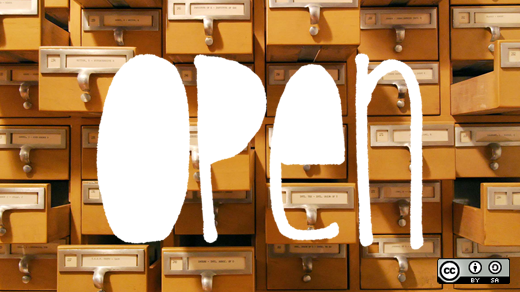I hereby declare 2012 the year of open source in libraries!
If not the year, it was still an impressive year for open source in libraries. It was 2004 when I first learned about the Koha open source integrated library system and started researching what it would mean to our library to make the switch to open source. Back then, when I asked people if they knew what open source was
or if they had heard of Koha, I heard "no" a lot more than I do now. Now, people call me up and ask me to come to their libraries to speak about open source and help them find the right products for their library. Now, I hardly ever hear, "We can’t pick open source because it’s too immature." Instead people contact me to ask what they have to do to get their hands on the latest and greatest release of Koha. It’s because of these changes that I’m seeing in the library professionals I meet that I proclaim 2012 the year of open source in libraries!
The year started with Lyrasis, a membership organization that helps libraries operate more effectively by providing expanded access to valuable resources and professional expertise in content creation and management, announcing the release of FOSS4Lib, a directory of open source software specifically for libraries. The directory is open to anyone to edit and add content and since the announcement that’s just what’s been happening. Over 165 new software applications have been added to FOSS4Lib that either are developed specifically for libraries or offer modules specifically for libraries. Of course, those weren’t all developed this year, but without such a tool libraries would have probably never known about 3/4 of them (even I learned about some I hadn’t found in previous research). The year continued with libraries choosing to switch from proprietary automation systems to open source. According to lib-web-cats, a directory of library automation systems, libraries have been choosing open source for the automation of their library collections in large numbers this year. The open source integrated library system is no longer "immature". Libraries are starting to notice it and make the switch.
In 2012:
- 280 libraries migrated to Evergreen
- 225 libraries migrated to Koha
- 114 libraries migrated to OPALS
- 2 libraries migrated to ABCD
- 2 libraries migrated to OpenBiblio
And those are just the ones who reported their migration to lib-web-cats. We all know that with open source, anyone can download the software and use it for any purpose without ever reporting their decision. On top of those numbers many libraries chose an open source discovery layer, a tool to help their customers find resources in their catalog and on their many subscription databases without having to search in multiple places.
In 2012:
Once again these are just the ones reported to this particular directory. I know that many libraries have also chosen Blacklight as their discovery layer and many more probably didn’t even know that lib-web-cats cataloged this kind of information (I didn’t until I did my research).
Another sign that open source is finally becoming a major player in the library arena is that the proprietary vendors are starting to advertise their systems as "more open" and stooping to scare tactics to stop libraries from looking into open source alternatives.
Overall an impressive year for open source in the library world and it can only get better from here. A year from now I hope to be reporting that the numbers I’ve listed above have doubled, and based on the many libraries that have been in contact with me as the year comes to a close I think that’s a completely reachable goal.







3 Comments